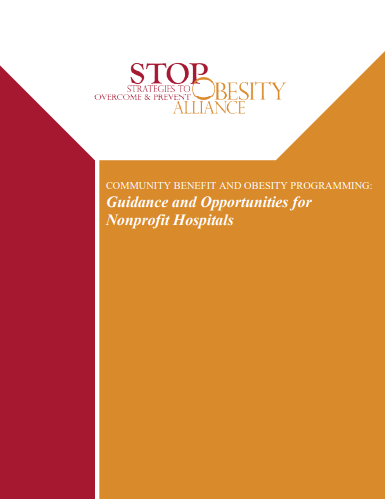Executive Summary
"Since the initial National Institutes of Health clinical guidelines for obesity management were created in 1998 and the seminal Surgeon General’s Call to Action on Obesity was published in 2001, obesity rates have remained high. An estimated 111 million Americans are classified as having obesity, 97 million of whom have at least one associated cardiovascular disease risk factor (National Health and Nutrition Examination Survey, 2010).
"Indeed, the vast majority of today’s burdens of illness – and associated health care spending – is driven by chronic diseases that have roots in our communities and social and physical environments. Though these play out in individuals’ lives and hospitals’ clinical wards, obesity and related chronic diseases demand population- and community-wide attention to broad determinants of health and health behaviors and access to evidence-based treatment programs.
"Strategic investment is necessary to implement effective community-based obesity prevention and treatment initiatives and ensure access to all community members, especially those most vulnerable.
"The Strategies to Overcome and Prevent (STOP) Obesity Alliance led a year-long, multi-stakeholder process to identify priorities, best practices, and recommendations for nonprofit hospitals that plan to address obesity through community benefit activities. In addition to extensive research, we brought together a wide range of participants with expertise in community benefit and obesity programming to participate in a day-long roundtable event held at the George Washington University School of Public Health and Health Services. This was a unique opportunity to share experiences, insights, and lessons learned, as well as frustrations and barriers experienced. This report focuses on the key questions identified and recommendations gleaned from the diverse group.
"We developed this report to assist nonprofit hospitals and those working in community benefit with the efficient use of community benefit resources to address obesity and obesity-related health concerns. Hospitals have tremendous opportunities to address unhealthful physical and social environments that contribute to obesity and create supportive and strategic programs to help community members improve their health.
"We look forward to supporting nonprofit hospitals and communities as they work to address the burdens of obesity and chronic disease in their communities."


